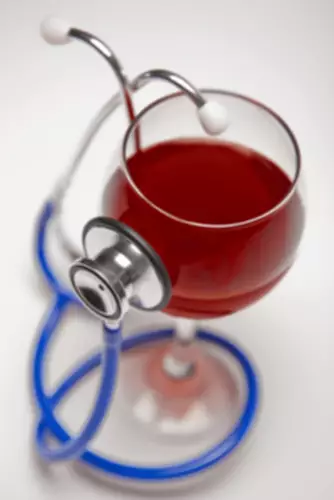Alcohol and blood thinners interact in different ways that will vary for each individual. This makes it hard to predict exactly what will happen, but it increases the risk of either bleeding or clot-related problems. Alcohol can also increase the risk of injuries, which can bleed more easily while someone is on blood thinners.
Side Effects of Mixing Medications With Alcohol

Consuming alcohol will thin your blood, making you more susceptible to heavy bleeding or bruising if you experience an injury. The effects of alcohol on the blood are either short- or long-term. Short-term, you can expect an increase in blood pressure and higher cortisol levels. But having more than three alcoholic drinks daily could increase your risk for a type of stroke caused by bleeding in the brain (hemorrhagic strokes). When you’re injured, blood cells called platelets rush to the injury site.
Most popular in Drugs
Blood thinners are drugs your doctor prescribes to prevent blood clots that can cause a heart attack or stroke. If your doctor has prescribed one of these medicines, it’s because you have heart disease or another is alcohol a blood thinner condition that increases your risk for clots. It’s not generally recommended to drink alcohol while taking blood thinners like Xarelto. Other drugs that act as blood thinners include warfarin and aspirin.
- You should also limit the amount you drink to one or two servings.
- This can help them determine if something is causing an interaction that could lead to serious bleeding.
- Other drugs that act as blood thinners include warfarin and aspirin.
- Drinking alcohol can sometimes be a touchy issue between patients and doctors.
- While these effects are short-lived, long-term alcohol use can trigger systemic (bodywide) inflammation, which damages the body’s tissues and vital organs over time.
Anticoagulants
Can You Drink Alcohol While Taking Metformin? – Health Central
Can You Drink Alcohol While Taking Metformin?.
Posted: Fri, 20 May 2022 07:00:00 GMT [source]
This integrated approach is crucial for addressing the dual challenges of liver disease and alcohol use disorder. This can help them determine if something is causing an interaction that could lead to serious bleeding. As females retain more alcohol in the bloodstream than males, they are at higher risk of developing problems from combining alcohol with medications. Excessive alcohol use can harm people who drink and those around them.
- Blood thinners keep a clot where it is and from getting bigger and prevent new clots from forming.
- Blood thinners may interact with alcohol as well as certain other medications, foods, and dietary supplements.
- Some of the newer drugs, which work on more closely targeted aspects of the clotting process, don’t require as much testing because they cause less bleeding, says Granger.
- Additionally, alcohol can damage blood vessel linings, increasing the likelihood of clot formation and subsequent cardiovascular events.
- Medications prescribed to lower cholesterol levels (known as statins) can cause flushing, itching, stomach bleeding, and liver damage.
How does drinking alcohol affect warfarin?

Call your doctor if you can’t eat for several days, or you’re vomiting or you get diarrhea that lasts more than a day. Vaccine-induced immune thrombocytopenia and thrombosis (VITT) is a rare condition in which the body’s immune response to a vaccine triggers the production… Blood clots can wreak havoc on your veins, leading to symptoms that can last for years. Low-impact activities such as walking, biking, yoga, Pilates and strength training are all fine. But if you enjoy higher-risk sports, ask your doctor if they’re safe for you, the NBCA advises. The risks of doing so “far outweigh the consequences of prolonged bleeding, which can be controlled,” the ADA says.
For example, if a blood clot forms and limits the flow of blood in the arteries, doctors call this thrombosis. This article explores how alcohol affects the ability of the blood to clot. Finally, it answers some common questions about alcohol and blood thinning. However, how alcohol affects your therapy with warfarin depends on many different things, including what and how much you drink. Also, individual differences such as age, gender, and medical history can affect your risk of DVT if you drink alcohol. It is important to talk to your doctor to get the best understanding of how alcohol will most likely affect your therapy with warfarin.
Opioid Pain Medications
If you discontinue any of them, your doctor may want to check your blood more frequently, the NBCA advises. Some drugs should be avoided unless there is a clear reason for taking them like clopidogrel, ticagrelor, or prasugrel, which help reduce the risk of stroke. Other drugs, such as amiodarone, which controls heart rhythm, double in potency when the patient is also taking warafin. Let your doctor, nurse, or pharmacist know about any prescription or over-the counter drugs, vitamins, and herbal supplements you’re taking. Some drugs and supplements can affect the results of the test used to monitor blood-thinner levels, the NBCA reports.
